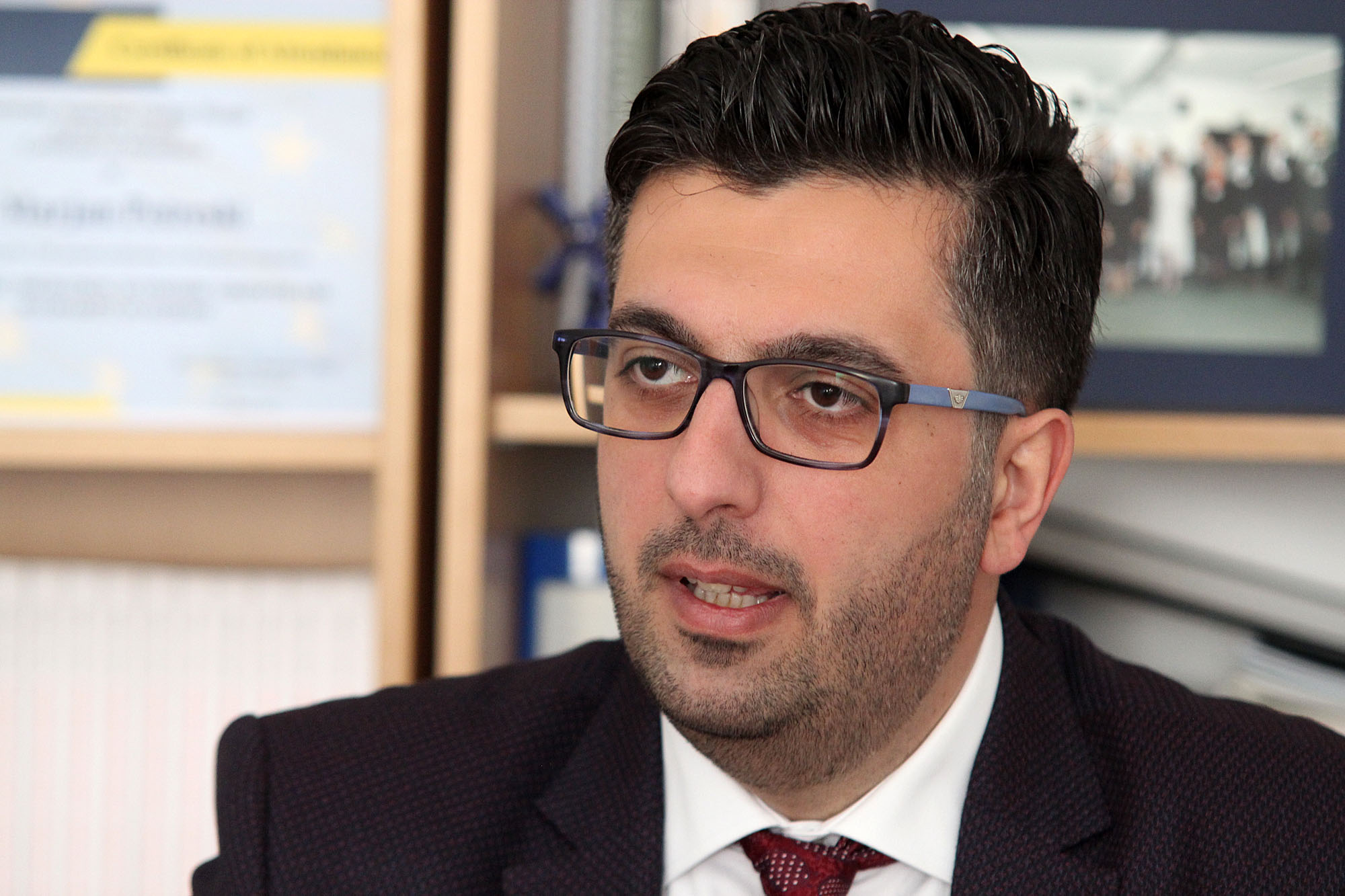The deterioration of the rule of law, low accountability and transparency, particularly concerning the spending of public money, the perception of senior government officials’ impunity and ignoring the voice of civil society in general contributed to the turning point of the parliamentary elections in December 2016.
With the help of civic engagement and extraordinary efforts by the international community, the opposition headed by the Social Democratic Union of Macedonia got a fair chance to form a government. Under the maxim for bringing back the rule of law and restoring civil liberties, several societal stakeholders, in the country and abroad, enabled the establishment of a new democratic government in June 2017.
The formation of the government in June 2017 decreased the political pressure on the social and economic environment, which seemed vital for the development of economic processes, which were and still are necessary to increase the standard of living of the population.
For the expert and general public, it was enough that the government declared its commitment to an inclusive debate respecting everyone’s right to the freedom of speech and to an inclusive consultation process accepting different expert opinions; thus, their actions will be to the benefit of the public good, which applies also to the development, adoption and enforcement of laws.
The debate on the rule of law is not a new debate in Macedonia.
The rule of law, or lack thereof, was the main line of concern in the period of the previous government, inter alia, noted or put forward as an argument also in the debate by the then opposition. However, when the current government was in the position to show a different approach regarding the broad spectrum of the rule of law, initial concerns appeared in the expert public and civil society about the rule of law in the tax area.
The VAT Law was adopted in 2000, when the VAT replaced the then turnover tax.
Even then, the law regulated that a taxpayer shall also be a physical person carrying out an independent business activity, but it primarily aimed to cover sole traders carrying out a commercial (business) activity, such as craftsmen, hairdressers, transporters, farmers, petty merchants etc.
Thus defined, the law requires independent persons carrying out an activity to be registered as VAT payers when their income in the calendar year exceeds a given threshold, the amount of which changed throughout the years and is currently MKD 1,000,000.
According to this definition, the VAT regime already includes all sole traders carrying out a business activity, or supplying goods or services the turnover of which exceeds the threshold envisaged. In 2014-15, the government regulated that in this regime the members of management and supervisory boards, and the persons renting business premises to firms will belong.
The first amendment was aimed at discouraging companies from discounting the salary for top managers and paying high amounts for memberships in boards, thus avoiding to pay social contributions. The second amendment was aimed at discouraging the rental of personal property to their own firms, as a way of extracting funds from the firm with an effective rental tax rate of 7.5%.
This was, approximately, the period when the public debate imposed the thesis that all individuals earning income over the specified threshold are subject to VAT, irrespective of the income basis, except for the salary. The then government never addressed these rumors in the public, nor did it order enforcement of the law according to that rough interpretation.
The stance of the current government that 'natural persons', or citizens – in the most general sense of the word, and not only sole traders – should be included in the VAT regime, heated the economic debate and caused public outrage in January 2018.
By the end of the debate in that period of the year, it became clear that the government was alone in its stance, while the unanimous opinion of the experts, academic public, civil society and tax agencies was that the general treatment of 'natural persons' in the VAT system was without a clear, precise and unequivocal legal basis, and the potential actions by the tax authorities would leave room for selectiveness and bias, which all together leads to undermining of the foundations of the rule of law.
The debate in that period of the year was closed with a statement by the tax authorities that it will be left to a voluntary registration of natural persons for the purpose of VAT, at least until the legal provisions are defined in more detail and until the fulfilment of the election promise to raise the threshold for registration, which was interpreted by the stakeholders as a clear demonstration of the government’s will to respect the rule of law in the domain of the implementation of the VAT law.
Since then, the issue has been treated in an analytical manner by experts and civil society representatives.
The analysis focused on two major issues. The first issue is the clarity needed in defining economic (or business) activity.
While this is defined in its broadest sense in the VAT law, lacking any precision, other laws potentially contradict this definition.
In particular, the law on personal income tax stipulates that economic activities are those conducted by produces, traders, transporters etc., while other activities – notably those of the liberal professions – are regulated separately as only independent and not economic activities. Similarly, the Company law explicitly excludes liberal professions and individual persons working in agriculture from the definition of a sole trader.
Therefore, as long as the law framework is set this way, the room for comprehensive reading of VAT applicability on physical persons is considerably limited and would impose a serious breach of the rule of law, on top of the fact that it creates legal uncertainly for the physical persons earning any income different than their wage.
The second issue creating the legal uncertainly related to the physical persons in the VAT system has been the treatment of authors.
The readers should note that in the Macedonian system of contracts, it is not customary (though not illegal) to conclude grant contracts with physical persons. Instead, there is one broad category defined in the law on personal income tax as authorship contracts. These are not copyright contracts per se, primarily because they cover both cases when the copyrights are and are not transferred onto the contractor.
In other jurisdictions, grant contracts are usually those not requiring a transfer of the copyright: for example, when a researcher receives a grant to conduct a study. In such context, there is no transfer of the copyrights, the author has the right to publish the work in a public domain and/or to send it for publication in a journal, in which case the copyright will be transferred to the publisher.
In the latter case, a copyright agreement will be used to transfer the right to the contractor (publisher) and to secure legal basis for the contracted physical person (the author) to realise a royalty if that is prescribed in the copyright contract.
Then, the royalty may be subject to VAT, as the transfer of the copyright represents a supply of service.
However, the creation of the work under the grant contract is by no means a supply of service and cannot belong to the VAT system. In our current legal context, there is no such distinction and all these contracts are put under ‘authorship contracts’ hence potentially mixing the cases where a supply of service takes place and where it does not. This is certainly a clear case of forcible imposition of legal uncertainty.
An aggressive execution of the VAT law for physical persons would bring all authorship contracts under the VAT system, hence punishing the physical persons who contracted authorship contracts where supply apparently did not take place.
In conclusion, civil society and academia workers and all other concerned physical persons will benefit from clearance of the legal fog pertinent to the VAT law for physical persons in Macedonia.
Clearer and unified definition of what consists economic activity and clear exclusion of contracts where supply of service does not take place is the minimum that authorities should pursue immediately.
Other concerned parties – notably, managers, members of supervisory bodies, renters, securities’ traders and others – should also articulate their position, all for the purpose of elevating the rule of law at a new level in Macedonia.
The column is based on the policy study: Individuals in the VAT system and the rule of law in Macedonia. With a special reference and recommendations concerning authorship contracts, which is available here: https://ideas.repec.org/p/ftm/policy/2018-10-16.html.















